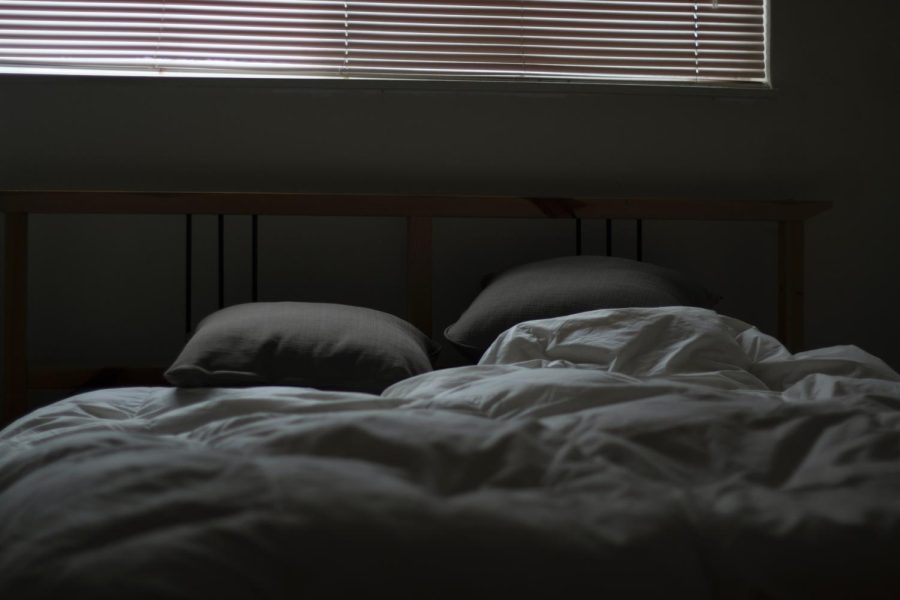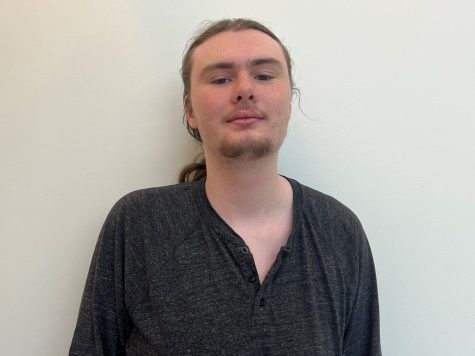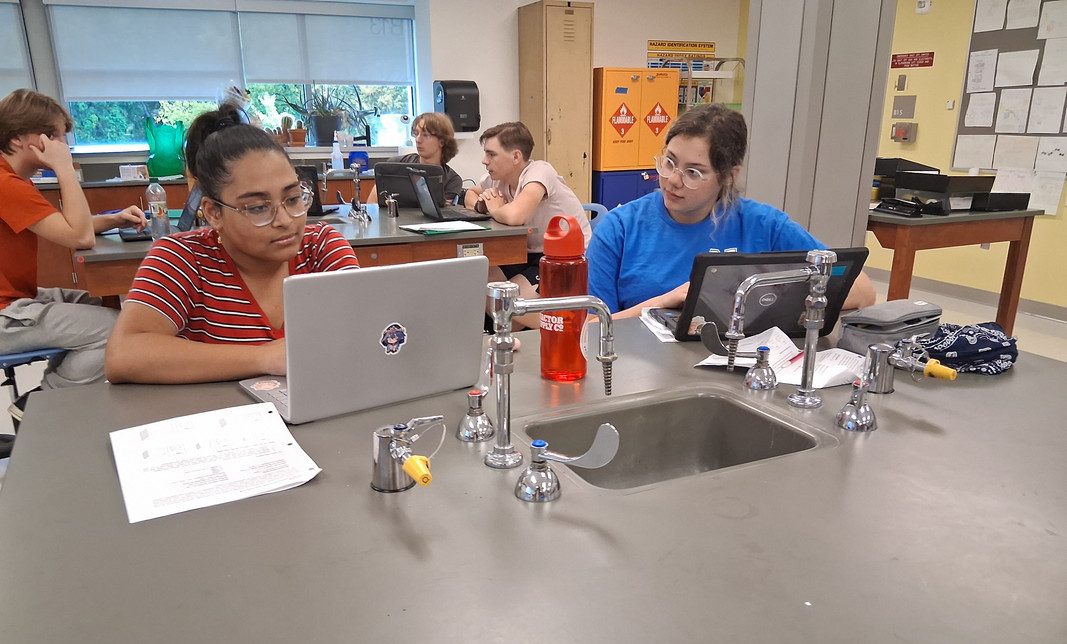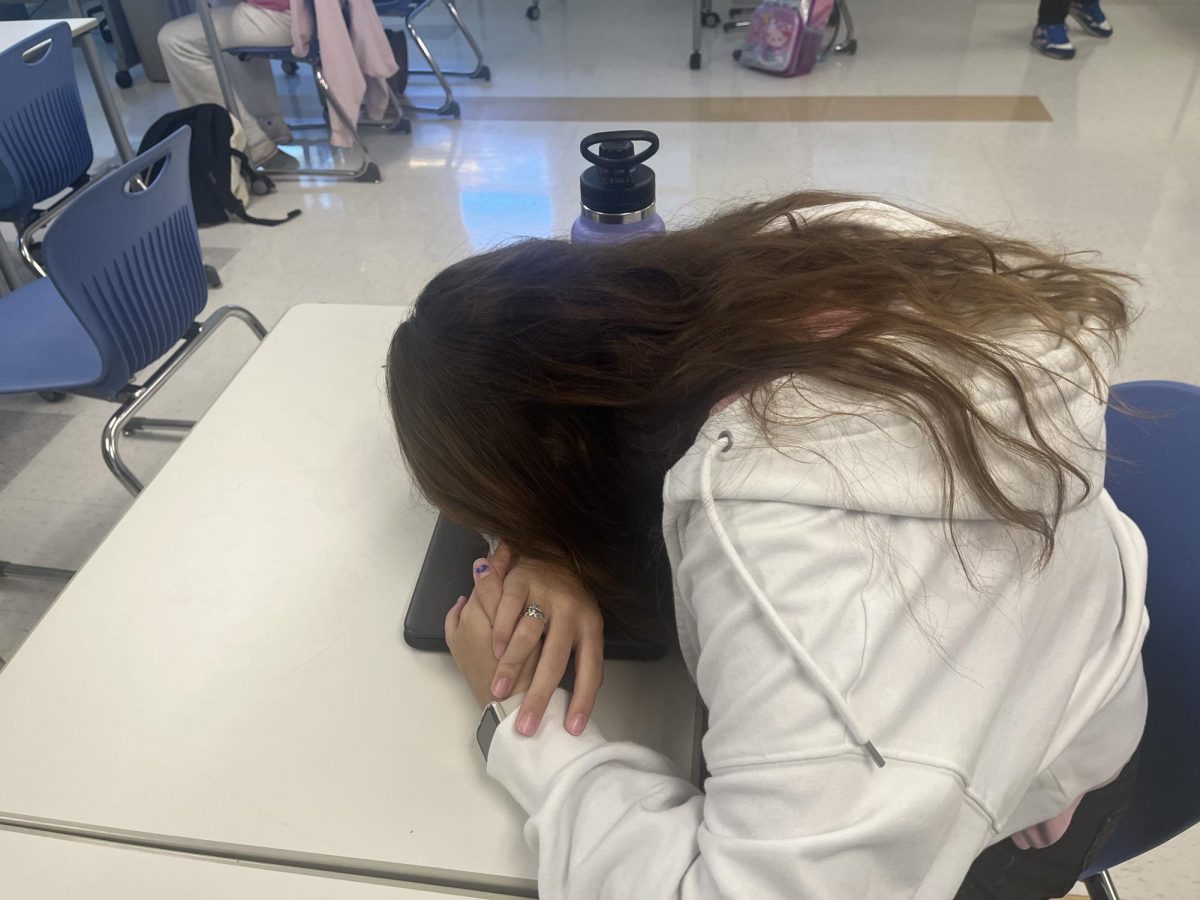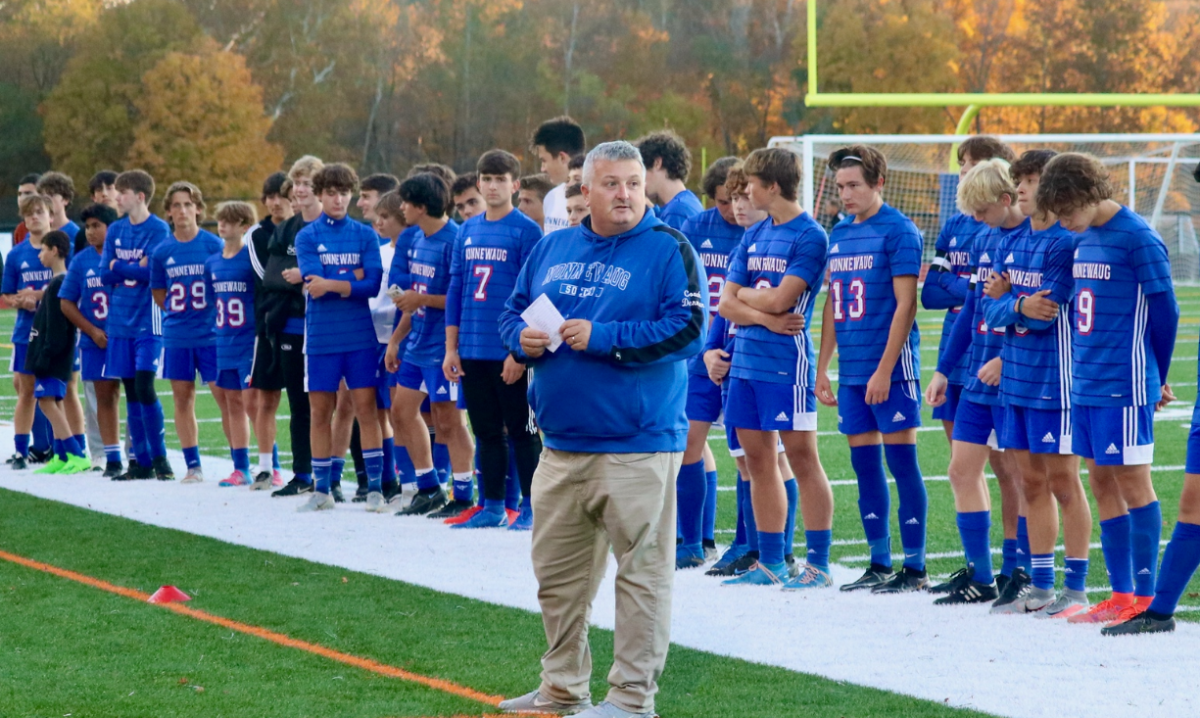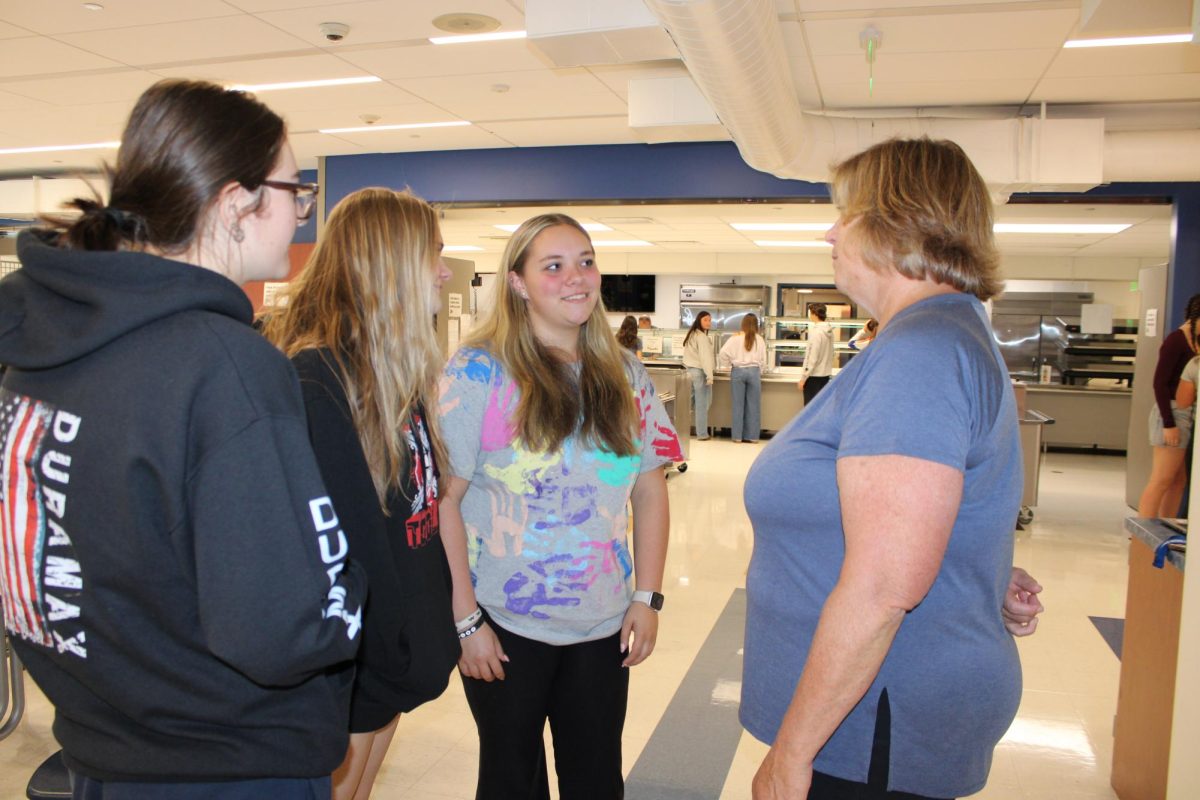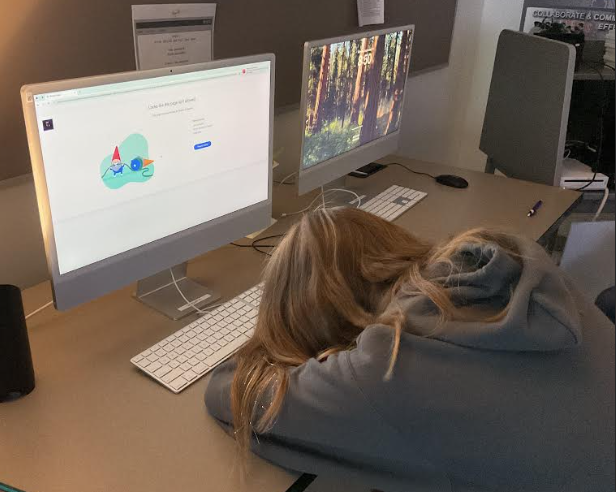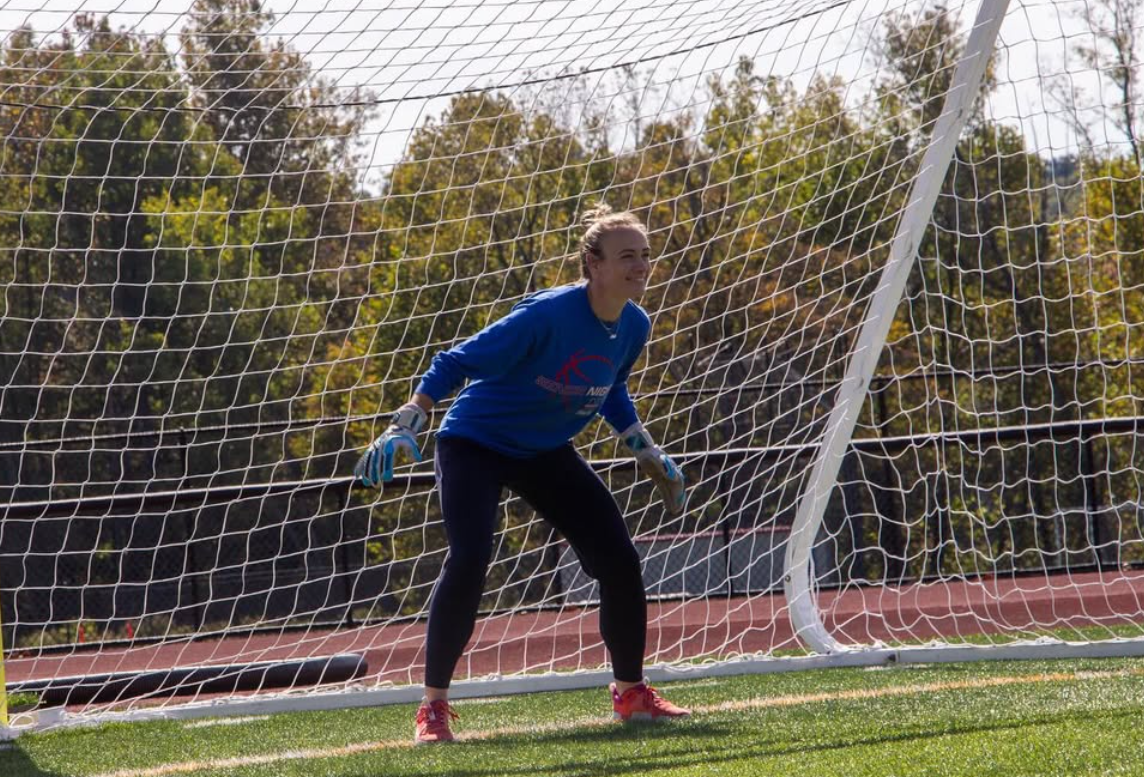Waites: Different Schedule Could Fix Nonnewaug’s Sleep Situation
Many students complain about Nonnewaug’s schedule causing sleep deprivation, but finding a better solution is challenging. (Quin Stevenson/Unsplash)
May 1, 2023
WOODBURY — A good night’s sleep is vital for students worldwide so they can be healthier, function better in school and retain more information. But when it comes to the students here at Nonnewaug High School, getting enough sleep can be hard.
According to the CDC, “teenagers aged 13-18 years should sleep 8-10 hours per 24 hours.” That being said, almost ¾ of all high school students don’t get enough sleep, according to healthline.com.
“Teens’ bodies and minds change in drastic ways during puberty, so it should come as no surprise that the timing of their sleep also varies,” Dr. Kasey Nichols said, according to healthline.com.
This wouldn’t be a problem if kids were allowed to go to school a little later in the day to compensate for the lack of sleep by the kids. The issue is that Nonnewaug’s schedule has us wake up egregiously early, with some waking up at 6 or even 5 in the morning after not getting adequate sleep.
“Sleep is more important for young individuals than it is for individuals my age,” said Ryan Campanario, one of Nonnewaug’s wellness instructors. “That’s been proven through many studies, and there has been talk about changing starting times from elementary school and high school and switching them, but the logistics of that pose a lot of problems.”
Nonnweaug assistant principal Nicole Lewis summed up the difficulties.
“There are a number of complications that may arise when a high school does consider changing their start time,” Lewis said. “Pushing the start time back means that the end time of the school day also gets pushed back and this has implications for teens who have jobs and responsibilities at home, like getting younger siblings off the bus or preparing dinner. Additionally, it gets difficult to schedule athletics with other schools if the high schools are not operating within the same general timeframe.”
Nonetheless, the school is in a dilemma.
According to the National Library of Medicine, “For adolescents, psychosocial health, school performance, and risk-taking behaviors are impacted by sleep disruption. Behavioral problems and cognitive functioning are associated with sleep disruption in children. Long-term consequences of sleep disruption in otherwise healthy individuals include hypertension, dyslipidemia, cardiovascular disease, weight-related issues, metabolic syndrome, type 2 diabetes mellitus, and colorectal cancer.”
The NLM continued citing other consequences of sleep, as well: “Short-term consequences of sleep disruption include increased stress responsivity; somatic problems; reduced quality of life (QoL); emotional distress; mood disorders and other mental health problems; cognition, memory, and performance deficits; and behavior problems in otherwise healthy individuals.”
The article went on to say that “Sleep disruption may also diminish the health-related quality of life (HRQoL) of children and adolescents with underlying medical conditions.”
Nonnewaug sophomore Emma Jones discussed the effects of our early start time as well as her opinions on the start schedule.
“Waking up early has caused me to lose sleep because I’m busy at night and it affects the way I feel,” Jones said. “I would like maybe starting school at around 7:45.”
Some here at Nonnewaug don’t mind the late starting schedule, such as Makenna Santerre, a senior who said that “the start schedule is fine for me I guess because I don’t have many classes in the morning.”
But we should be asking ourselves this question: Why should the needs of a few determine the needs of the many?
A common argument against the schedule change is that it would affect some students in clubs and sports. What the argument doesn’t take into consideration is that the schedules can always be updated to accommodate everyone, and that even if they couldn’t change the schedule, why should we accommodate these students with our incredibly early start times, while sacrificing the well-being, mental and physical health of the large majority of students that go here?
However, at the end of the day, the complications would be a significant issue that would need a solution, and the argument can be made that a schedule change would be implausible because of those complications.
This is the opinion of Chief Advocate features editor Neal Waites.



